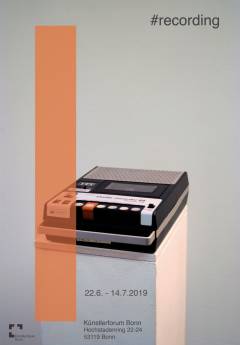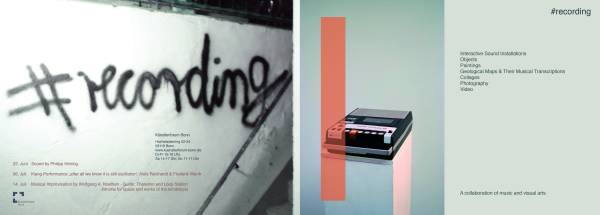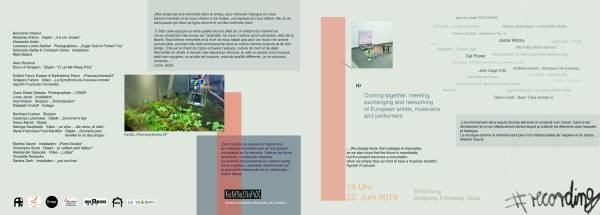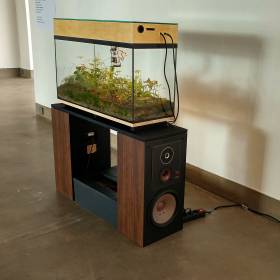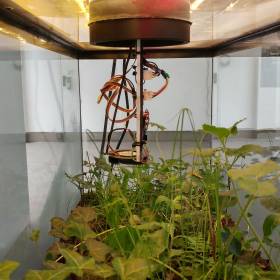#Recording
Exposition collective
Kanîbalhopox - Réseau européen d'espaces de création
Exposition de Phonosynthesis
Künstlerforum, Bonn, Allemagne | 22 Juin - 14 Juillet 2019
ExSitu collective
The demands of technological progress in the modern era have exponentially accelerated the production of human knowledge, until the point where no one can fully comprehend it today. For this engine to run smoothly, specialists and institutions - public or private - fragment this knowledge into countless of fields of knowledge, more and more distant and separated from each other.
The artist himself was isolated in his own approach, lonely in front of his work, forced to face his own subjectivity and to propose a particular and individual vision of his relationship to the world. Here again, the territories explored have seen their horizons expand in the modern era, the relations between arts and sciences bringing out new branches and new specialists.
Without the digital boom of these recent decades, it probably wouldn't be possible to conserve the knowledge continuously produced by humanity. Computer servers have replaced libraries. But it is important to note that the development of communications technologies, especially the Internet, is causing a re-hybridization of fields of knowledge. Trans-, pluri- or interdisciplinary collaborations are multiplying, creating connections between fields of study on a global scale.
Knowledge is gradually returning to an organic form, just like the complexity of relations between nature and culture. It is the same between art and science, because if they don't aim for the same objectives, artists and scientists are driven by the same curiosity, inspired by the same desire to push the boundaries of the known world. They have in common this particular relation to the world based on observation and interpretation, the doubts, the joys and the emotions that accompany the time of research, of invention, of creation.
The time seems to be reunion, artists and scientists have so much to say, inspirations to share, questions to explore, under the look of a benevolent common ancestor; the mythical scholar, at once artist, scientist and thinker …
ExSitu mixes research and creativity in a sensitive quest at the border between art and science. By appropriating scientific tools and methods, the aim is not only to explore their potential poetry, but also to question their uses and accessibility. Following the conviction that “knowledge” and “nature” are common substances, ExSitu contributes to a free access of knowledge. The process of making tools is part of the creative itinerary, blurring the distinction between the laboratory, the workshop and the exhibition space.
Phonosynthesis #2
2018
Interactive sound installation - Modular dimensions
Variant techniques. Undergrowth plants, aquarium, LEDs, sensors, Arduino, Raspberry Pi, amplified speakers
Software: Raspbian, Arduino IDE, Puredata
If plants seem motionless, it is because human doesn't evolve at the same rate. This sound installation tries to make perceptible the vegetative power.
Plants are soundless, but with this installation they write a score based on the rhythm of their breathing.
In this terrarium, a set of undergrowth plants coexist with an Open Hardware device who analyzes the process of photosynthesis. It is composed of several sensors (CO2 - hygrometry - soil humidity - temperature - brightness) and generates real-time data which are analyzed, processed and then sonified by a digital synthesizer made with the Open Source software, Pure-Data.

